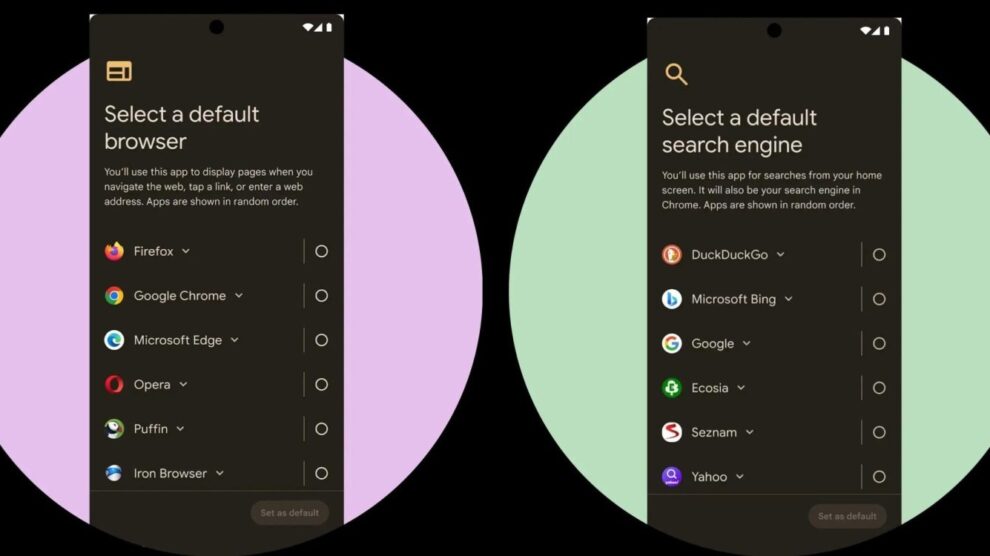Google just dramatically overhauled how its signature Android and Chrome products function for European citizens following the seismic new Digital Markets Act (DMA) dictating fairer technology competition.
The redesigns offer Europeans significantly more choice browsing the web and downloading apps. But they also shower users in transparency notices outlining Google’s data collection practices. Let’s unpack the pending landscape adjustment and its strategic implications.
What Does the Digital Markets Act Demand?
At its core, the freshly enacted DMA aims checking big tech power and enhancing online consumer rights. Specifically for Google, this manifests as:
- Opening Android and Chrome to rival service competition
- Restricting self-preferencing products like Google Flights
- Mandatory data protection transparency
Breaching compliance risks massive EU fines upwards of 10% annual income. So Google quickly scrambled adapting its strongest regional foothold around European preference sensitivities.
A Response to Anti-Competitive Criticisms
European regulators and activists long criticized Google for anti-competitive practices like binding Android devices into its services ecosystem. The DMA thus requires dismantling portions of Google’s entrenched mobile dominance.
By injecting choice parity and transparency, legislators hope creating fairer competitive dynamics stimulating innovation across more stakeholders.
New Choice Screens Shake Up Android & Chrome
Front and center within Google’s DMA compliance tactics across Android and Chrome stands offering alternate search engine and app store selections. Prepare choosing within these mandatory choice menu screens:
Android Search Engine Screen
Expect greeting a search engine preference popup immediately upon activating new Android gadgets. Options will include Google Search, DuckDuckGo, Bing, Yahoo, and more. Previously Android reserved Google Search as exclusive default.
Chrome Browser Choice Menu
Similarly, Google Chrome’s initial home screen will soon showcase alternate search engine options like privacy-focused DuckDuckGo or ecological Ecosia. This ends Chrome’s hardcoded Google Search integration on non-Android platforms like Windows and iOS.
Android App Store Selection
Moreover, a parallel app store choice display introduces alternative places downloading Android programs beyond just the pre-installed Google Play. Competition here remains sparse but expect options like Amazon’s AppStore or Aptoide gaining parity spotlight.
Flights Grounded from Google Search
Interestingly, Google also strips its popular flight search integration entirely from EU domains to satisfy DMA fair competition clauses. Regulators seemingly took issue with the tool’s advantageous positioning access inside broader Google Search.
Instead, flight queries will redirect to an independent aggregator UI comparing prices more neutrally across providers. The decision highlights how antitrust actions translate into product feature regulation with tangible consumer app impacts.
A Delicate Balancing Act
Navigating DMA compliance presents delicate balancing for Google avoiding unnecessary Android disruption while appeasing regional watchdogs. Eliminating useful tools like flight search raises as many questions as default spiritual successors answering the feature gap.
But the symbolic concession marks a calculated appeasement maneuver ensuring regulators Google takes seriously its responsibilities combating monopolization. Especially regarding areas where its dominance seems only growing despite competition technically existing.
Brace for Mandatory Data Transparency Notices
Beyond addressing competition qualms, the DMA also spotlights data protection through compulsory transparency disclosures to users.
Granular Data Collection Breakdowns
This means Android phone setup, Chrome welcome pages, and even Google Search itself will soon detail exactly what user information gets harvested. Language requires specificity like with whom data types get shared downstream and for what purposes.
Europeans stand gaining immense visibility into Google tracking and personalization algorithms powering its digital services ecosystem. Users receive more informed control over privacy tradeoffs accompanying the Google product universe’s convenience.
Shoring Consumer Trust and Informed Consent
At its heart, mandated data transparency intends rebalancing power dynamics toward individuals regarding data sharing consent. By shining sunlight on once shadowy backend processes, the DMA facilitates responsibility into technology consumer relationships.
It also pushes designers considering privacy more foundational building consumer-first services rather than just maximizing data extraction for targeting and monetization.
A Healthier Digital Market in the Making?
Stepping back, the DMA’s sweeping impacts of consumer choice protections, Google self-preference limits and transparency constraints walk an ambitious tightrope.
Successful implementation promotes healthier, more diverse European digital markets where users control their technology more than faceless monopolies. But executed clumsily, the legislation risks unintended conflicts between access and competition.
Regardless, Google’s Android and Chrome preemptively evolving under threat of non-compliance spotlights regulatory power checking even mighty gatekeeping platforms. Whether other world regions eventually enact similar tech industry oversight, Europe’s assertiveness portends promising strides toward ethical accountability in consumer technology.










Add Comment